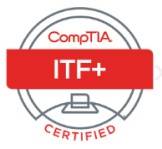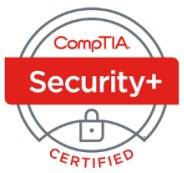A Managed Security Service Provider (MSSP) is a third-party company that offers comprehensive cybersecurity services to organizations. MSSPs manage and monitor security infrastructure, provide threat detection and response, offer security consulting, and often deliver these services on a subscription basis, helping businesses enhance their overall security posture without the need for an in-house security team.
Managed Security Service Providers (MSSPs) interact with client businesses in several ways:
Risk Assessment and Planning: MSSPs typically start by conducting a thorough risk assessment of the client’s existing security posture. This involves identifying vulnerabilities, assessing potential threats, and understanding the unique security challenges of the business. Based on this assessment, they collaborate with the client to develop a tailored security plan.
Implementation of Security Solutions: MSSPs assist in implementing and managing security solutions such as firewalls, intrusion detection and prevention systems, antivirus software, and other security tools. They ensure that these tools are properly configured, updated, and monitored to effectively safeguard the client’s infrastructure.
Continuous Monitoring: MSSPs provide 24/7 monitoring of the client’s network and systems. They use advanced technologies to detect and respond to security incidents in real-time. This continuous monitoring helps identify and mitigate potential threats before they escalate into significant security breaches.
Incident Response: In the event of a security incident, MSSPs play a crucial role in incident response. They help investigate the incident, contain the breach, and implement remediation strategies. This collaborative approach ensures a swift and effective response to security events.
Security Consulting: MSSPs offer expert advice and guidance on improving overall security posture. This includes recommending security best practices, conducting employee training, and assisting in the development of security policies and procedures.
Compliance Management: For businesses subject to industry regulations and compliance standards, MSSPs assist in ensuring that security measures align with these requirements. They often help with audits and documentation to demonstrate compliance to regulatory bodies.
Regular Reporting and Communication: MSSPs maintain open communication with their clients through regular reporting. They provide insights into the security status of the organization, detailing potential risks, incidents, and the effectiveness of security measures. This transparency allows clients to stay informed and make informed decisions about their security strategy.
In essence, MSSPs act as an extension of a client’s IT and security team, offering expertise and services to enhance and maintain a robust cybersecurity posture. The level of engagement can vary based on the specific needs and agreement between the MSSP and the client.
We go beyond the conventional, providing tailored solutions that evolve with the ever-changing threat landscape. From Compliance as a Service to ongoing Penetration Tests and vCSO services, we are committed to fortifying your digital defenses.
Data security in a company involves protecting sensitive information from unauthorized access, disclosure, alteration, and destruction. Various factors can contribute to failure points in data security. Here are some common failure points:
Weak Passwords and Authentication:
Failure: Inadequate password policies, weak passwords, or lack of multi-factor authentication can make it easier for unauthorized individuals to gain access to sensitive data.
Unpatched Software and Systems:
Failure: Failing to regularly update and patch software and systems can lead to vulnerabilities that attackers may exploit. Outdated systems are more prone to security breaches.
Insufficient Employee Training:
Failure: Lack of awareness and training among employees regarding cybersecurity best practices can result in unintentional security breaches, such as falling victim to phishing attacks or improper handling of sensitive data.
Inadequate Access Controls:
Failure: Poorly managed access controls can lead to unauthorized individuals gaining access to sensitive data. This includes both external threats and internal risks from employees with unnecessary access privileges.
Insecure Third-Party Relationships:
Failure: Inadequate vetting and oversight of third-party vendors or service providers may expose the company to security risks, especially if these partners have access to the company’s data.
Insufficient Data Encryption:
Failure: Failing to encrypt sensitive data both in transit and at rest increases the risk of data interception or theft. Encryption adds an extra layer of protection to prevent unauthorized access even if data is compromised.
Lack of Incident Response Plan:
Failure: Companies without a well-defined incident response plan may struggle to effectively manage and mitigate the impact of security incidents, leading to prolonged data exposure and damage.
Inadequate Physical Security:
Failure: Physical security lapses, such as unauthorized access to data centers or unsecured devices, can compromise sensitive information.
Insecure Mobile Devices:
Failure: With the increasing use of mobile devices for work, failure to secure these devices, including lost or stolen smartphones or tablets, can pose a significant data security risk.
Data Backup and Recovery Issues:
Failure: Insufficient or irregular data backup practices can result in data loss during security incidents, such as ransomware attacks. Lack of a robust recovery plan can impact business continuity.
Failure to Monitor and Audit:
Failure: Inadequate monitoring of network activities and neglecting regular security audits may result in undetected vulnerabilities or ongoing security threats.
Compliance Violations:
Failure: Ignoring or failing to comply with industry regulations and data protection laws can lead to legal consequences and reputational damage.
Companies need to address these failure points comprehensively through a combination of technology, policies, employee training, and ongoing monitoring to establish a robust data security framework. Regular risk assessments and updates to security measures are crucial to adapting to evolving cybersecurity threats.










Copyright © 2024. Telco United Cyber. All Rights Reserved.